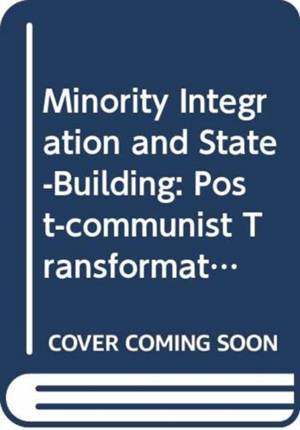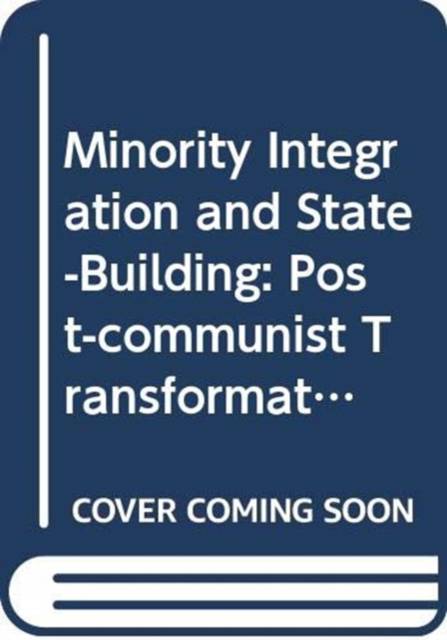
- Afhalen na 1 uur in een winkel met voorraad
- Gratis thuislevering in België vanaf € 30
- Ruim aanbod met 7 miljoen producten
- Afhalen na 1 uur in een winkel met voorraad
- Gratis thuislevering in België vanaf € 30
- Ruim aanbod met 7 miljoen producten
Minority Integration and State-Building
Post-Communist Transformations
Ada-Charlotte Regelmann, Timofey AgarinOmschrijving
This book examines the political and social transformation of post-communist states. With a focus on minority integration, the author evaluates the interaction between state and society, illustrating how successful dialogue between the two can result in successful state-building.
Current studies of post-communist Central and Eastern Europe tend to view minorities as recipients of integration rather than actors. As a result, minority agency is largely unrecognised in state- and nation-building processes. In contrast, this book analyses both institutional and actor perspectives to understand how political institutions and societal structures constrain but also generate minority group agency. Providing up-to-date analyses of most recent developments in integration policies in
European liberal nation-states at the national, sub-state and European level policymaking, the author compares the cases of Estonia and Hungary to develop a framework to critically evaluate minority and interethnic relations with the state and society more widely.
This book will be of interest to students and scholars of political science, international relations, comparative politics, sociology, Central and Eastern European politics, post-communism, and minority politics.
Specificaties
Betrokkenen
- Auteur(s):
- Uitgeverij:
Inhoud
- Aantal bladzijden:
- 240
- Taal:
- Engels
- Reeks:
Eigenschappen
- Productcode (EAN):
- 9780415732291
- Verschijningsdatum:
- 31/12/2024
- Uitvoering:
- Hardcover
- Formaat:
- Genaaid
- Afmetingen:
- 156 mm x 233 mm

Alleen bij Standaard Boekhandel
Beoordelingen
We publiceren alleen reviews die voldoen aan de voorwaarden voor reviews. Bekijk onze voorwaarden voor reviews.











